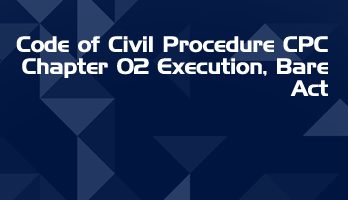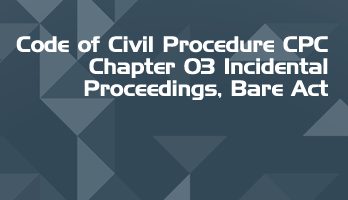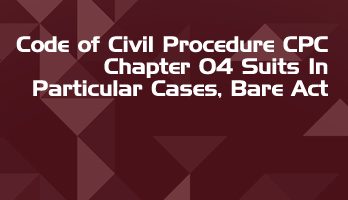A 'Bare act' is the actual legislation passed by the Parliament of India. Generally, an act sets out the high level legal and policy principles applicable to the subject matter of the law.
Most acts are accompanied by 'subsidiary legislation' such as rules, regulations, notifications and orders; which address the actual implementation detail of the act.
Free Full Course Available on LawMint's YouTube Channel
How to Land Your Dream LLB Internship in a Top Law Firm
- Part 1 - Introduction
- Part 2 - Internship Planning
- Part 3 - Internship Research
- Part 4 - Building Your Profile
- Part 5 - The Email
- Part 6 - The Resume
- Part 7 - The Cover Letter
- Part 8 - The Interview
- Part 9 - Self Development
Practical and comprehensive course, with real examples and step-by-step analysis of the complete internship application process. Check out LawMint's YouTube channel now!
Indian Divorce Act, 1869
Chapter XIII – Re – Marriage
Section 57 – Liberty to parties to marry again
When six months after the date of an order of a High Court confirming the decree for a dissolution of marriage made by a District Judge have expired, or when six months after the date of’ any decree of a high Court dissolving a marriage have expired, and no appeal has been presented against such decree to the High Court in its appellate jurisdiction, or when any such appeal has been dismissed, or when in the result of any such appeal any marriage is declared to be dissolved, but not sooner, it shall be lawful for the respective parties to the marriage to marry again, as if the prior marriage had been dissolved by death: Provided that no appeal to the Supreme Court has been presented against any such order or decree. When such appeal has been dismissed, or when in the result thereof the marriage is declared to be dissolved, but not sooner, it shall be lawful for the respective parties to the marriage to marry again as if the prior marriage had been dissolved by death.
Section 58 – English clergyman not compelled to solemnize marriages of persons divorced for adultery
No clergyman in Holy Orders of the 2’* * * No Church of England 3* * * shall be compelled to solemnize the marriage of any person whose former marriage has been dissolved on the ground of his or her adultery, or shall be liable to any suit, penalty or censure for solemnizing or refusing to solemnize the marriage of any such person.
Section 59 – English Minister refusing to perform ceremony to permit use of his Church
When any Minister of any Church or Chapel of the said 2*** Church refuses to perform such marriage service between any persons who but for such refusal would be entitled to have the same service performed in such Church or Chapel, such Minister shall permit any other Minister in Holy Orders of the said Church, entitled to officiate within the diocese in which such Church or Chapel is situate, to perform such marriage – service in such Church or Chapel.
Important Central Acts in Regional Languages
Legislative department website also features regional language versions of several important Central Acts.
Free Full Course Available on LawMint's YouTube Channel
How to Land Your Dream LLB Internship in a Top Law Firm
- Part 1 - Introduction
- Part 2 - Internship Planning
- Part 3 - Internship Research
- Part 4 - Building Your Profile
- Part 5 - The Email
- Part 6 - The Resume
- Part 7 - The Cover Letter
- Part 8 - The Interview
- Part 9 - Self Development
Practical and comprehensive course, with real examples and step-by-step analysis of the complete internship application process. Check out LawMint's YouTube channel now!












